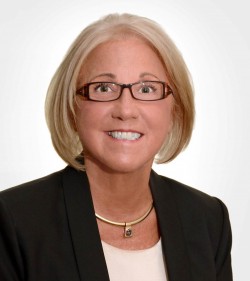A Clear Vision of the Future
 Jean Ramsey
Jean Ramsey
In recognition of her efforts to improve care in pediatric ophthalmology, Associate Professor Ophthalmology and Pediatrics, and Associate Dean for Alumni Affairs, Jean Ramsey MD, MPH, was recognized as a Choosing Wisely Champion by the American Association for Pediatric Ophthalmology and Strabismus (AAPOS). Announced earlier this year, the Champions program is an initiative of the ABIM Foundation to recognize clinicians who are leading efforts to reduce overuse and waste in health care. More than a dozen medical specialty societies have committed to participate in the program.
“Early in my career as a pediatric ophthalmologist I would see older children with vision loss in either one eye or both eyes. You did the exam and you knew that we could have picked this up early in life, and if we had, their vision would have been restored, or vision loss could have been reduced,” said Ramsey. “That’s what motivates me: a belief that every child deserves to develop his or her best possible vision.”
For more than 20 years Ramsey has been a leading voice, both in her community and on a national level, to ensure young children receive appropriate eye care. Central to this work has been efforts to reduce unnecessary annual comprehensive eye exams in favor of routine vision screening.
The AAPOS Choosing Wisely recommendation states, “Annual comprehensive eye exams are unnecessary for children who pass routine vision screening assessments.”
“The types of problems we need to identify in a preschool population affect anywhere between three to five percent of that population. So if the recommendation is that every child in this population gets a comprehensive eye exam, you’re going to be examining 95 percent of the kids who are perfectly normal,” said Ramsey.
AAPOS says annual comprehensive eye examinations increase financial costs, a child’s absence from school and parental time away from work. A universal, age-appropriate and evidence-based vision screening can detect children who may have a problem who can then be referred for a comprehensive eye exam. Comprehensive eye exams are appropriate for children who do not pass a vision screening and for children with identified risk factors.
Working with groups such as the Massachusetts Society of Eye Physicians Surgeons, Ramsey has taken this message further by leading efforts to defeat state legislation mandating pediatric comprehensive eye exams, and instead replacing it with a bill requiring all children undergo vision screening prior to starting kindergarten. Since passing in 2004, others have used the bill crafted by Ramsey as a template for similar legislation in their states.
“In the system I want to be a part of – and I think we all want to be a part of – is one in which all children have the opportunity to have vision problems detected and referred for care,” she explained.
While ensuring more children had access to vision screenings was an important step, Ramsey found wide variety in the quality of screening methodologies being used. In fact, some states were still using inadequate guidelines developed in the 1940s.
To help educate providers on high-quality evidence-based guidelines, Ramsey worked with the national Head Start program to disseminate information through its networks, with a potential to improve eye care for more than a million children across the country.
“Vision is developmental. A number of studies are coming out that show that children who have vision problems have reduced performance on pre-literacy skills. We’ve always assumed children need to see well to read and continue their education and learning, but now we have the studies that are documenting that,” she said.
“As a physician, we treat patients in our office; but to me, my patients are the people who haven’t made it into the office yet. They have a problem that hasn’t been identified, and I feel a responsibility for that,” she said.
View all posts